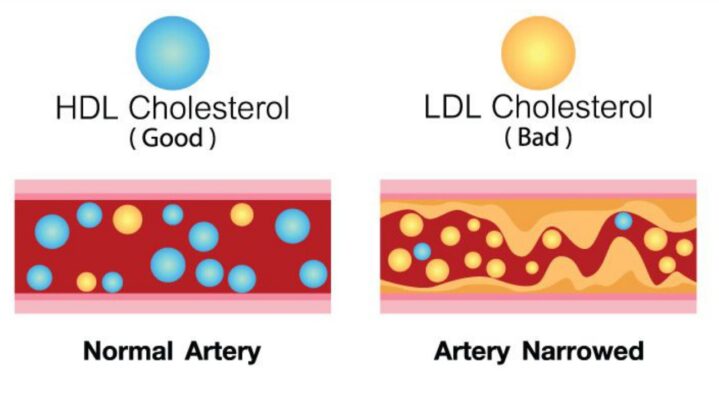Cholesterol gets a bad reputation, but it really is essential for your body’s natural optimal functioning. Cholesterol is used by the system to generate enzymes and vitamin D, as well as to aid metabolism. Your liver produces sufficient cholesterol to complete these duties, but cholesterol does not come solely from the liver. Cholesterol can be found in a variety of foodstuffs, including livestock, cheese, and chicken. Your cholesterol volumes may grow too excessive if you consume a lot of these items.
High-density lipoprotein (HDL) and low-density lipoprotein (LDL) are the two major kinds of cholesterol. Lipoproteins are lipid and protein-based particles. Cholesterol is carried across the system by lipoproteins.
HDL is regarded as “good cholesterol.” HDL aids in the removal of unwanted cholesterol from the body. LDL is known as “bad cholesterol” as it transports cholesterol to your arteries, where it can build up in the walls of the arteries.
Atherosclerosis is a condition in which cholesterol builds up. Blood blockages in your arteries are more likely as a result of this. A major risk factor for heart attack can occur when a blood clot gets loose and plugs an artery in your heart or brain. Plaque formation can also limit blood supply and oxygen to vital areas.
HDL (high-density lipoprotein): The greater the amount, the preferable it is. For women, it should be at minimum 55 mg/dL, while for men, it should be at minimum 45 mg/dL.
LDL (Low Density Lipoprotein): The lesser the value, the ideal it is. If you don’t have cardiovascular disease, circulatory disease, or hypertension, it should be less than 130 mg/dL. If you have any of these illnesses or higher overall cholesterol, it should be less than 100 mg/dL.
Cholesterol, even the bad form, has some advantages. Cholesterol is required by your system for a variety of tasks, including the production of bile acids and hormones like oestrogen and testosterone. Your liver, on the other hand, manufactures sufficient cholesterol on its own so you don’t need to worry about receiving it from your food. However, if it isn’t, you may regulate your cholesterol level by eating a balanced diet, avoiding greasy foods, and exercising regularly.
Also Read: Running or Walking: What Is More Beneficial For Health?





